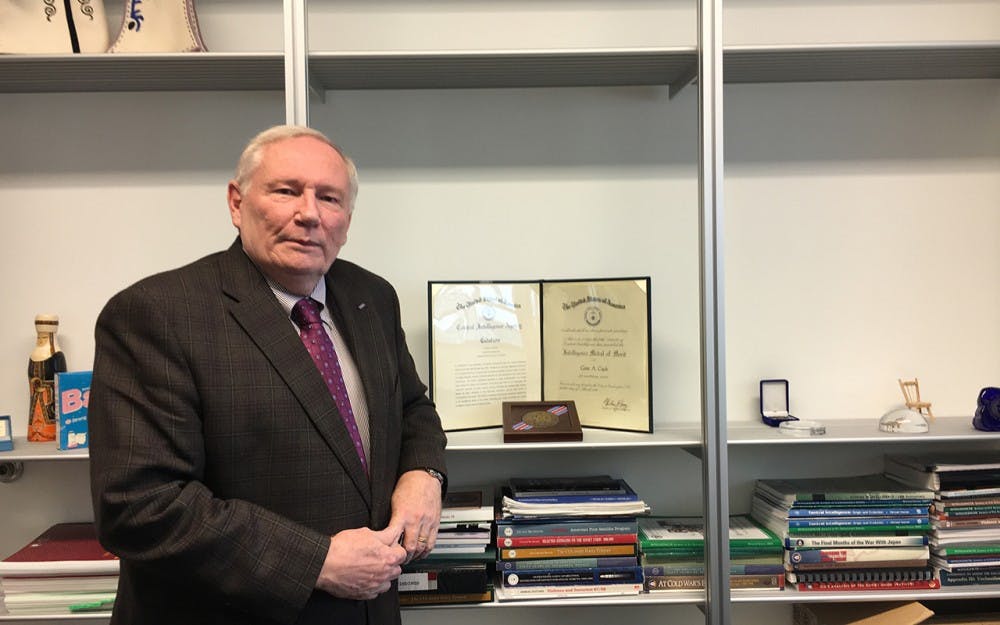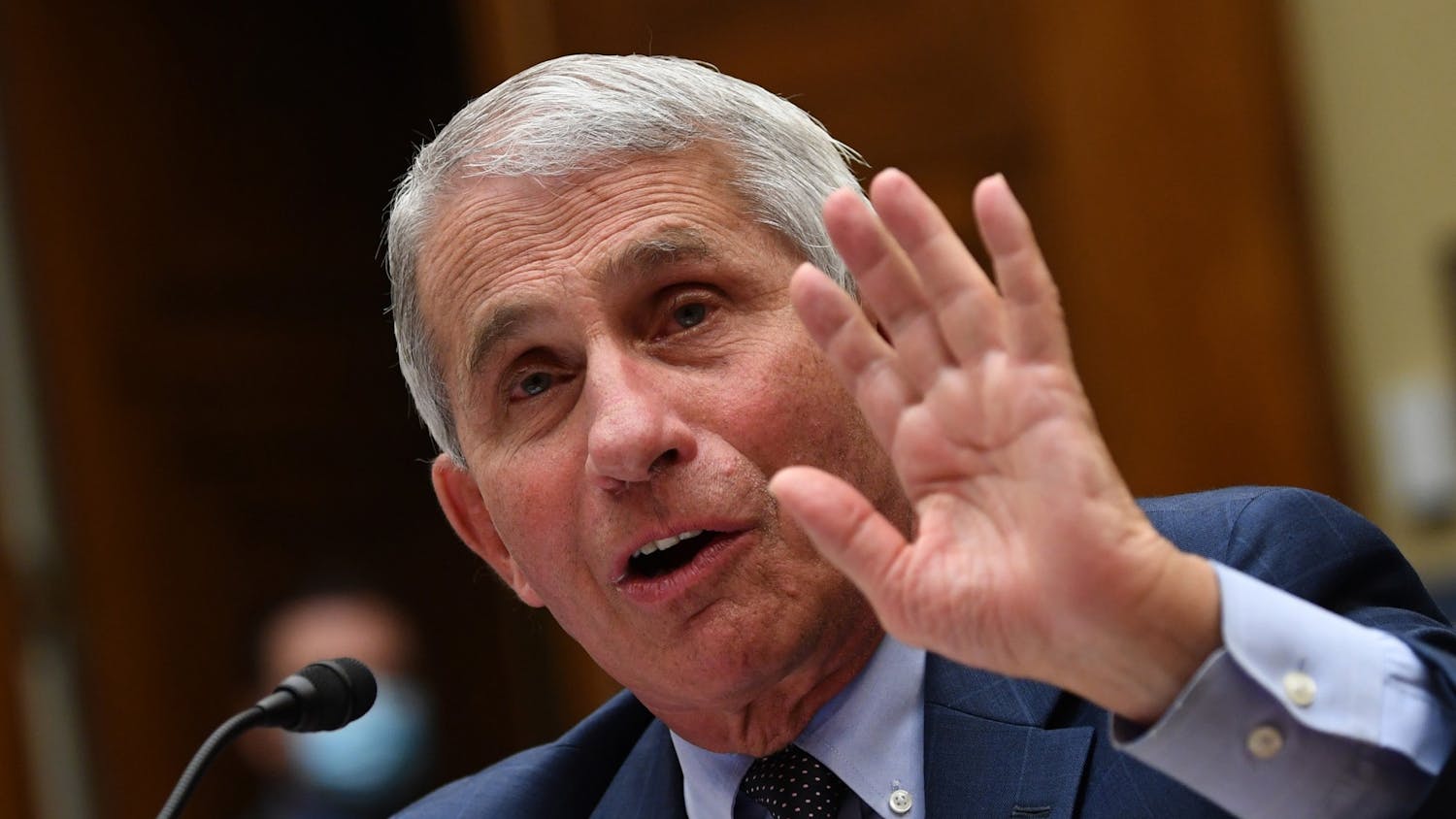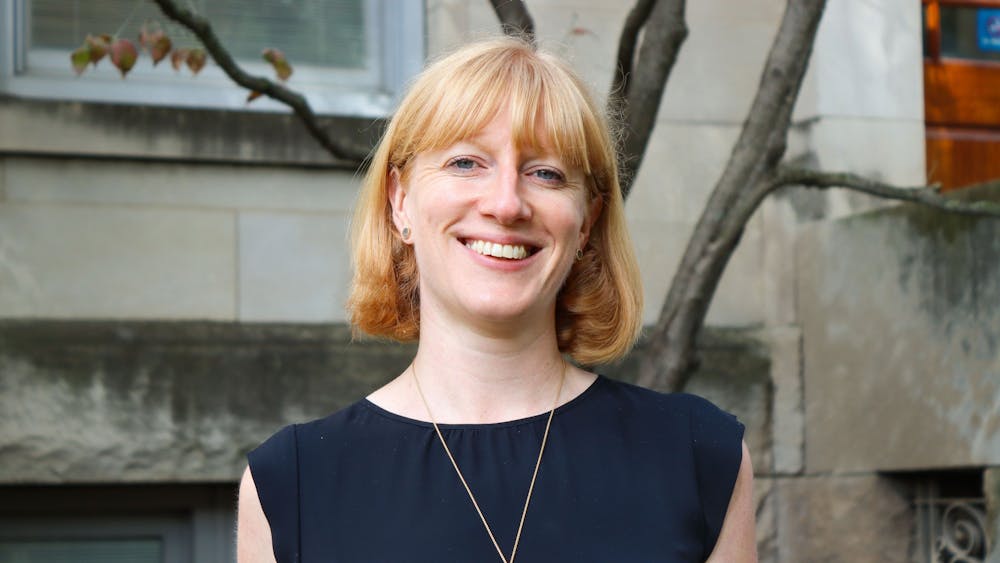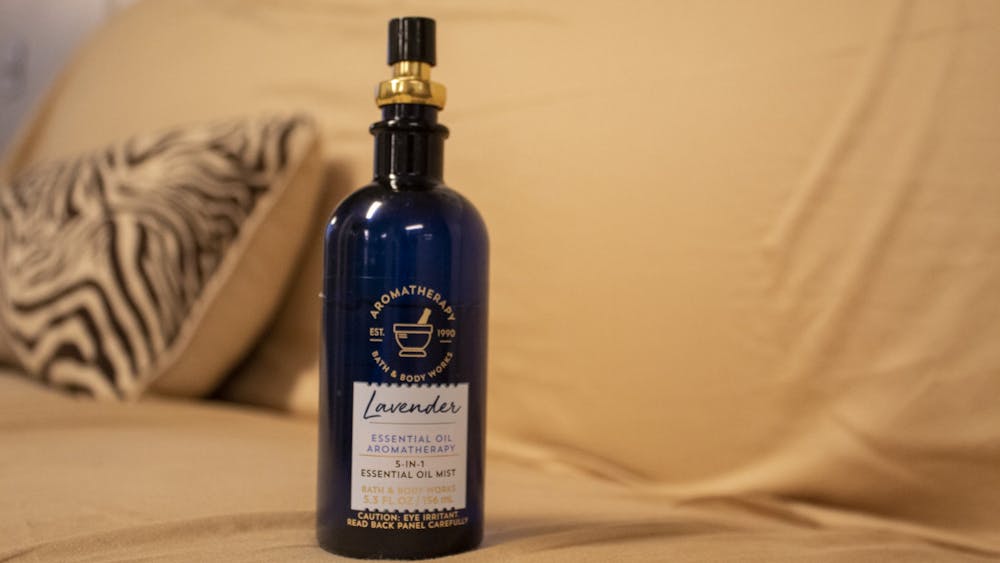Although he said he’s no James Bond and is still waiting for his Aston Martin, IU professor of practice Gene Coyle was an international spy for the CIA.
Coyle was an operations director with the CIA from 1976 to 2006. Since then he has spent his time as a professor at IU, his alma mater, but will retire after this semester.
“After 30 years at the CIA and 13 years at my alma mater, I’ve contributed to society enough,” Coyle said.
During his time with the CIA, Coyle recruited people to become spies. Coyle said it could be difficult because it is impossible to convince most people to risk their lives for their government.
However, Coyle said he enjoyed the mental challenge of his job and viewed it as an intellectual chess game.
“It’s not just about party lines but what’s really important to you,” Coyle said, “If I can figure that out, I can figure out what I need to offer.”
Coyle said there are typically few things that are really important to people, such as money, politics or their family. \
His job was to get inside people’s heads and use the information he had to recruit them.
Coyle’s area of specialization was Russia and Eastern Europe, and Coyle and some of the CIA’s other top agents were sent to the Soviet Union during the Cold War.
The Soviet Union’s Komitet gosudarstvennoy bezopasnosti, or Committee for State Security, had unlimited power at the time. It had access to almost everyone’s cars and had microphones in people’s apartments, Coyle said. Although he respected the committee’s talent, he said he knew they were not going to outwit him.
Coyle said the best and brightest agents were sent to the Soviet Union during this time because there was a certain mentality the agents needed in order to succeed there.
“You had to be confident to an obnoxious degree,” Coyle said.
He could not doubt himself or his actions, Coyle said. He had to know that he had done the right thing and move on with confidence. When he came back from the Soviet Union, Coyle said he was satisfied knowing he had outsmarted the best foreign security service by acquiring critical intelligence information for the CIA.
In 2006, Coyle was hired as a professor of practice at in the School of Public and Environmental Affairs, where he had previously received his bachelor of arts in American history and political science and his master of arts in East European history.
When Coyle called his college friends to tell them he was coming back to IU as a professor, he said they thought it was quite funny. Coyle said his friends knew him in his more immature years, when he was on the IU gymnastics team and could be found doing a handstand on the hips of the mermaid in Showalter Fountain.
Coyle said his teaching strategy throughout the years has primarily been to entertain students, so he is able to sneak knowledge to them. The most rewarding part of teaching is having students stay in touch with him after they graduate. Coyle said it’s fulfilling to know you made an impression on them.
Although Coyle still finds working with his students fun, he said he is worn down by the bureaucracy of higher education. When Coyle came to work at IU, he said he had naïve ideas about the world of academia and its pursuit to find truth.
“People are about the same everywhere,” Coyle said, “There are good people, there are dumb people.”
When May comes around and he is retired, Coyle said he’ll be spending a lot of time in his pajamas and picking up hobbies because his wife doesn’t want him sitting around complaining about being bored.
His hobbies will include writing spy novels, traveling and possibly even becoming an international jewel thief, Coyle said.
Coyle and his wife, Jan Coyle, plan to travel the states more because he’s been to more foreign countries than U.S. states and said he’s tired of citizens of other countries telling him to see more U.S. landmarks.
Although Coyle will have a less structured, more uncertain schedule after he retires, there is one thing he said he knows for sure.
“If I can outwit the KGB, I can outwit anybody,” Coyle said.






